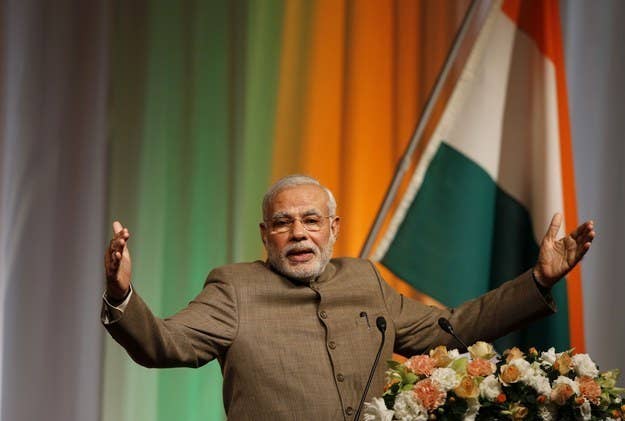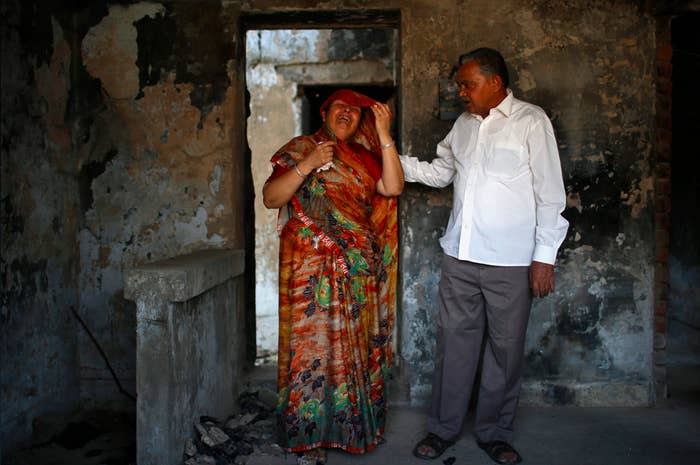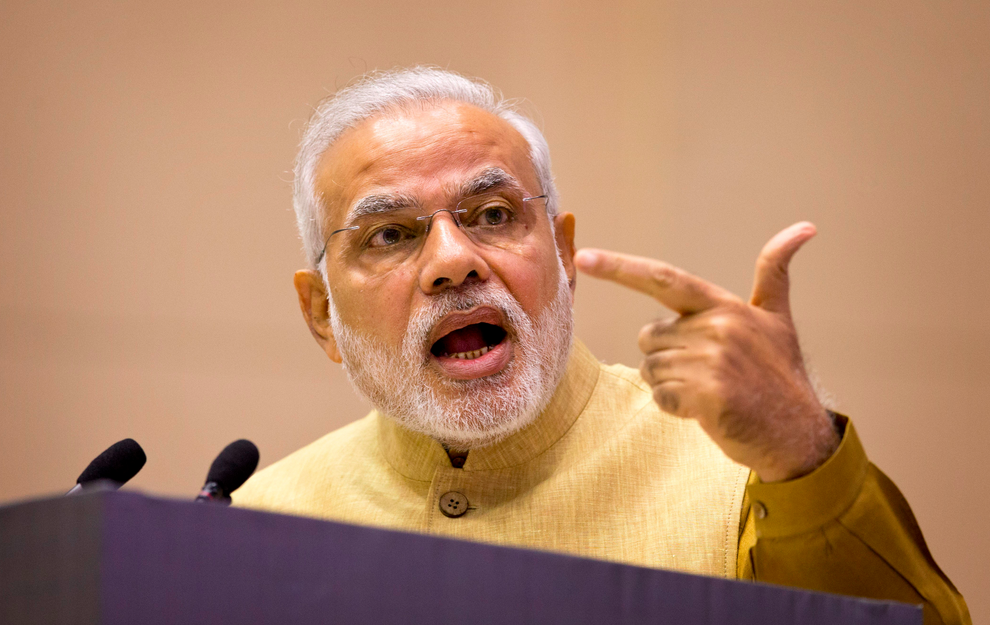One day before Indian Prime Minister Narendra Modi arrives in New York, the city's federal court issued a summons for him to appear in a lawsuit accusing him of crimes against humanity during the 2002 communal riots in the Indian state of Gujarat.

The U.S. Federal Court for the Southern District of New York issued the summons on Thursday after a lawsuit was filed against Modi by a city-based non-profit called the American Justice Center as well as two survivors of the Gujarat riots in which more than 1,200 people, mainly Muslims, died.
Modi will arrive in New York on Friday, his first trip to the U.S. as India's prime minister. He is set to address the United Nations General Assembly as well as the Indian-American community at a sold-out event at Madison Square Garden. He will also meet President Barack Obama and Vice President Joe Biden in Washington.
From 2005 until this year, the U.S. government denied a visa to Modi for his failure, as the then leader of Gujarat, to stop the deadly religious riots. After his election as prime minister, the White House said he would be welcomed to the U.S.
The violence in 2002 broke out when a train carrying Hindu pilgrims and social workers was set on fire in a Muslim-dominated area, killing 59 people. Hindu mobs retaliated by burning and looting homes and shops, raping, torturing and killing Muslims for days. More than 900 women were widowed and 600 children were orphaned during the riots. The government's official death toll stands at 790 Muslims and 254 Hindus.
The 28-page lawsuit accuses Modi of crimes against humanity, cruel and inhuman punishment, extrajudicial killing, wrongful death, negligence, and infliction of emotional distress, among other crimes.

The American Justice Center said it filed the lawsuit seeking "justice against human right violations committed against religious minorities in India."
The other two plaintiffs are Muslim survivors of the Gujarat riots.
One of them, who identifies herself only as "Jane Doe" for fear of repercussions, claims her family and her home in a village in Gujarat were attacked by workers of the BJP, the party currently ruling India, and the RSS, a Hindu nationalist party with ideological affiliations to Modi and the BJP. According to the lawsuit, her mother was severely beaten by the workers and later died of her injuries, while her brother was also seriously injured. Her family's home was "burnt to ashes."
The other plaintiff is identified only by his first name, Asif. He claims his grandmother was killed by BJP and RSS workers during the riots and that he was also tortured, beaten and intimidated by them on separate occasions. Asif said he was turned away by authorities because they were acting on Modi's orders not to help or save any Muslims.
The lawsuit is seeking compensatory and punitive damages against Modi for violations of state, national and international law committed against Muslims in India.

The lawsuit is filed under the the Alien Tort Claims Act which gives federal courts jurisdiction to hear tort lawsuits brought by non-U.S. citizens who allege a violation of international law or a treaty to which the United States is a party.
Modi has been cleared by the Indian Supreme Court.
In a interview with Reuters last year, Modi said he did not have any guilty feelings about the massacre in his state. "People have a right to be critical," he said when asked if he was frustrated with being defined by the riots."We are a democratic country. Everyone has their own view. I would feel guilty if I did something wrong. Frustration comes when you think 'I got caught. I was stealing and I got caught.' That's not my case."
"The Tort Case against Prime Minister Modi is an unequivocal message to human rights abusers everywhere," said John Bradley, director at the AJC, First Post reported. "Time and place and the trappings of power will not be an impediment to justice."
Modi is required to respond to the summons within 21 days. It is likely that the Indian government will seek to dismiss the case.
Last year, the Eastern District of New York issued a summons to Sonia Gandhi, the leader of India's opposition Indian National Congress party in connection with a lawsuit accusing her of human right abuses during the 1984 anti-Sikh riots in India filed by a New York-based group, Sikhs for Justice. Gandhi made a motion to dismiss the case. It was dismissed this year.
Sikhs forJustice is now protesting Modi's visit to the U.S. The group announced that they will convene a "citizen's court" in front of the White House to "indict" Modi on charges of attacking religious minorities in India.
The Alliance for Justice and Accountability is also planning a protest against Modi. The recently-formed group announced it would display black flags outside Madison Square Garden, where Modi is scheduled to speak on Sept. 28.

